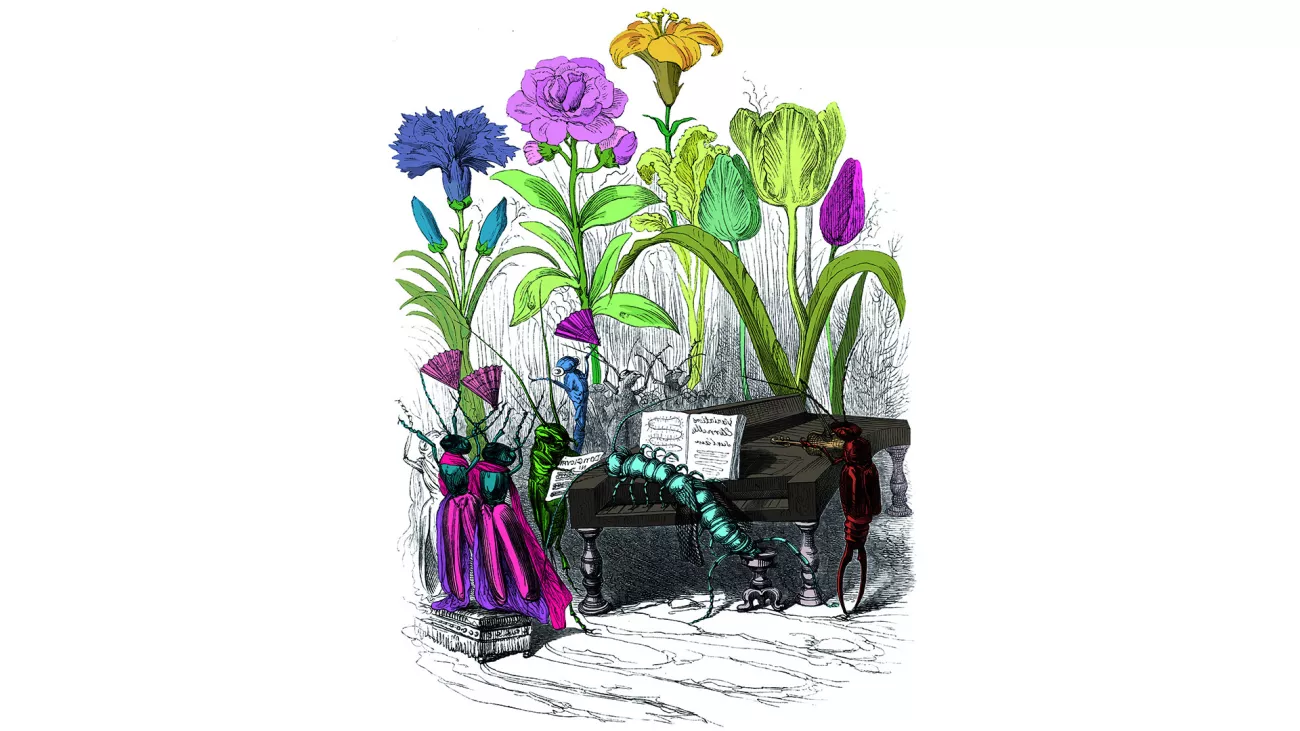OPERA in one prologue and three acts by Henry Purcell. Livret by Nahum Tate.
First representation in december 1689 in the London Boarding School for Girls

An eminently political text, Virgil’s Aeneid celebrated the exploits of the Trojan hero driven out by the Greeks and destined by the gods to found Rome. Dido, the Phoenician princess who became Queen of Carthage, occupied only one stop on this glorious journey. The purpose of opera as it flourished in the 17th century is very different, and this is why the scorned woman takes precedence over the man of action. An archetype of amorous betrayal, Dido will inspire more than a hundred operas by Western composers, from Cavalli to Britten. Better than any other, this torn figure gives out the song of the soul.
Context
The Trojan War brought into conflict the kingdoms of Greece and the city of Troy in Asia Minor. Trojan Prince Aeneas saw his city sacked and lost nearly all of his family. This valiant warrior, the son of Venus and Anchises, leaves Asia Minor to found Troy anew on a more auspicious shore of the Mediterranean (it will be Rome, destined to rule over the ancient world). But his ship is wrecked by a storm on the African coast. Dido, the founder and Queen of Carthage, welcomes Aeneas all the better since, being a widow, her authority is challenged by the neighboring kingdom. The hero stands forth, gleaming in the clear light, godlike in face and shoulders, for Venus herself endowed him with a radiant beauty. While listening to Aeneas relate his adventures, Dido drinks the poison of a lasting love.
Act I
In her palace, Dido is unable to conceal her torments. Her sister Belinda surmises that she loves Aeneas without understanding that Dido fears the will of the gods and does not want to betray the memory of her former husband. Belinda heartens Dido to accept her feelings toward Aeneas. Such a marriage would ensure the prosperity of Carthage, the queen’s honor as well as Aeneas’s happiness. Belinda’s encouragements are joined by those of the second lady-inwaiting and of the attendants. All urge Dido to give free expression to her desires for the benefit of her people. Aeneas enters and declares his love to the queen. She weakly tries to turn him down while Aeneas is ready to tempt fate, live with her and serve Carthage. Belinda and the chorus encourage Love to overcome Dido’s reluctance. She eventually gives way to her passion.
Act II
Scene 1
The next morning, Dido and Aeneas are celebrating their union with a great hunting party. But the Sorceress gathers her witches in a cave in order to stir up the destruction of Carthage. Horror-stricken by happiness, she has decided to ruin Dido’s plans and hasten the end of the Trojan hero. She will disrupt the hunt with a storm then an evil Spirit will appear to Aeneas disguised as Mercury who will order him to leave Carthage on the spot.
Scene 2
In a grove, Dido and Aeneas are taking a rest. The courtiers entertain them with dancing and singing in praise of Diana. A thunderstorm breaks out and Belinda prompts all to return to the city. Aeneas, who has stayed behind, encounters the evil Spirit in the guise of Mercury. He commands Aeneas to obey Jove, leave Dido and get under way to Italy with his warriors. Aeneas consents but blames the gods for compelling him to betrayal.
Act III
Scene 1
In the harbor of Carthage, the Trojan sailors are preparing to go to sea in a lighthearted mood with no regret for the women they leave behind. The Sorceress and her witches are delighted at the queen’s impending distress, which will lead to the fall of Carthage. Now they devise to unleash a storm that will swallow up Aeneas’s ship and their joy will be complete.
Scene 2
At the palace, Dido rages against her ill fortune. When Aeneas comes to tell her of the divine order, she accuses him of having deceived her. Aeneas protests and tells her he will defy Jupiter’s command. Beside herself with anger, Dido rejects him. After his departure, attended by Belinda and the court, Dido takes a fatal poison.
Musical direction, William Christie
Stage direction, Deborah Warner
With Malena Ernman, Christopher Maltman, Judith van Wanroij, Hilary Summers, Lina Markeby, Ana Quintans, Céline Ricci, Marc Mauillon, Ben Davies
Actor in the Prologue, Fiona Shaw
Choir and orchestra Les Arts Florissants
See all the castWednesday, December 3, 2008 - 7:00pm
Wednesday, December 3, 2008 - 9:30pm
Friday, December 5, 2008 - 7:00pm
Friday, December 5, 2008 - 9:30pm
Sunday, December 7, 2008 - 3:00pm
Sunday, December 7, 2008 - 5:30pm
Tuesday, December 9, 2008 - 7:00pm
Tuesday, December 9, 2008 - 9:30pm
Salle Favart
100, 85, 70, 40, 15, 6 €
Cast





















Figurantes (enfants), Loubna Abdelli, Tara Aïta, Sabine Audelin, Constance Aupetit, Clara Babiau, Alexandra Babiau, Marie Beaujeux, Alexandra Bibaut, Lilia Boukaïba, Aurore Bresset, Tara Buzdon, Jade Castel, Sara Cavrel, Jade Cenderelli, Jasmine Chazelas, Lucie Courcier, Adèle Courcier, Lou Darmangeat, Jinane Dolbec, Yandé Fall, Thaïs Fischer, Shaïnés Foughali, Sirine Guiot, Zoé Guiot, Sofia Hansson, Charlotte Issaly, Neige Jumeau, Adélie Laforge, Agnès Leblanc, Olivia Lindon, Chloé Maire, Lucile Malavergne, Alexia Marouani, Sarah Massart-Weit, Clémence Meunier, Inès Nadal, Maïa Obolensky, Garance Perrois, Kimberley Pregasse-Antoine, Capucine Pulisciano-Fernez, Anna Robyn, Leila Schütz, Constance Sichel, Wanda Simalty, Hanna Thang, Margot Thang, Laetitia Tibi, Gabrielle Tort, Absa-Diatou Touré, Tanisha Tshisekedi.
Chœur et orchestre Les Arts Florissants
Production, Opéra Comique, Adaptation d’une production des Wiener Festwochen 2006, dont la création a eu lieu le 11 mai 2006 à Vienne
Coproduction, De Nederlandse Opera, Amsterdam













